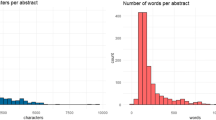Abstract
In a paradoxical manner, Heidegger's work is deeply tainted by his complicity with totalitarian (fascist) oppression, despite the fact that his philosophy, in its basic tenor, was always dedicated to “freedom” and resistance to totalizing uniformity. While acknowledging his early fascination with power struggles, the essay tries to show how, as a corollary of his “turning” (Kehre), Heidegger steadily sought to extricate himself from the tentacles of oppressive power (Macht) and manipulative domination (Machenschaft). The focus here is on recently published treatises of the 1930's. The conclusion inserts Heidegger's thought into the contemporary arena of global standardization.
Similar content being viewed by others
Author information
Authors and Affiliations
Rights and permissions
About this article
Cite this article
Dallmayr, F. Heidegger on Macht and Machenschaft. Continental Philosophy Review 34, 247–267 (2001). https://doi.org/10.1023/A:1012294107879
Issue Date:
DOI: https://doi.org/10.1023/A:1012294107879




